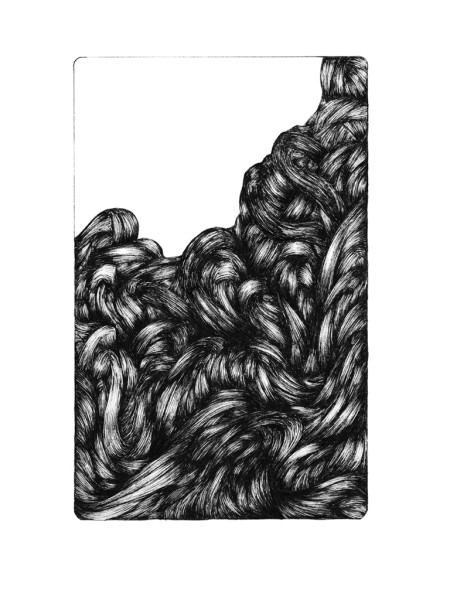They went down into the water like brown beads on black thread. The sight was almost peaceful to the white men, their grim faces grim as butchers or abattoir boys. Peaceful-sad, like sending good cattle to slaughter. They went quietly, mournful-lowing. The primary sense was of waste.
The line the chain had dragged across the deck made a trail of broken skin, piss, blood, feces. They sluiced the wood clean with buckets drawn from the dead water. Some dripped through the cracks and joints into the sailors’ bunks. The sack-cloth bedding and the few clothes they had smelled of rotten things for weeks—things beside the semen and sweat rot they usually stank with.
Damp hair began to sprout in corners, appear in beds, snag on fish-hooks. One hot afternoon, the anchor came up draped in black, furry slime. Soon, dark fluff was baked into biscuits, wrapped around the legs of weevils, trapped in spider-webs, clumped between the men’s toes. The parrots below deck added to the commotion by losing their feathers, some by dropping from their perches. The captain’s cat leapt from the hull. A strand of black hair caught between two teeth was the final straw. As it pulled free, it cut the gum open, and rendered each tooth a marble pattern of red on white.
The next morning, they sent the rest overboard.
Down into the waves like brown beads.



 The SmokeLong Grand Micro Contest (The Mikey) is now an annual competition celebrating and compensating the best micro fiction and nonfiction online.
The SmokeLong Grand Micro Contest (The Mikey) is now an annual competition celebrating and compensating the best micro fiction and nonfiction online.